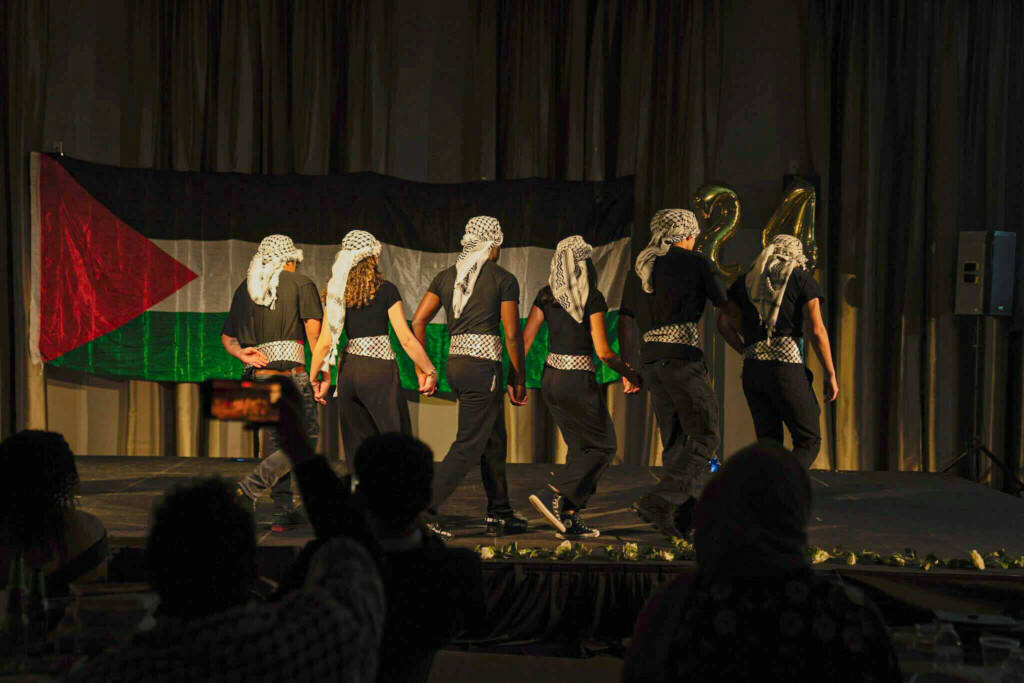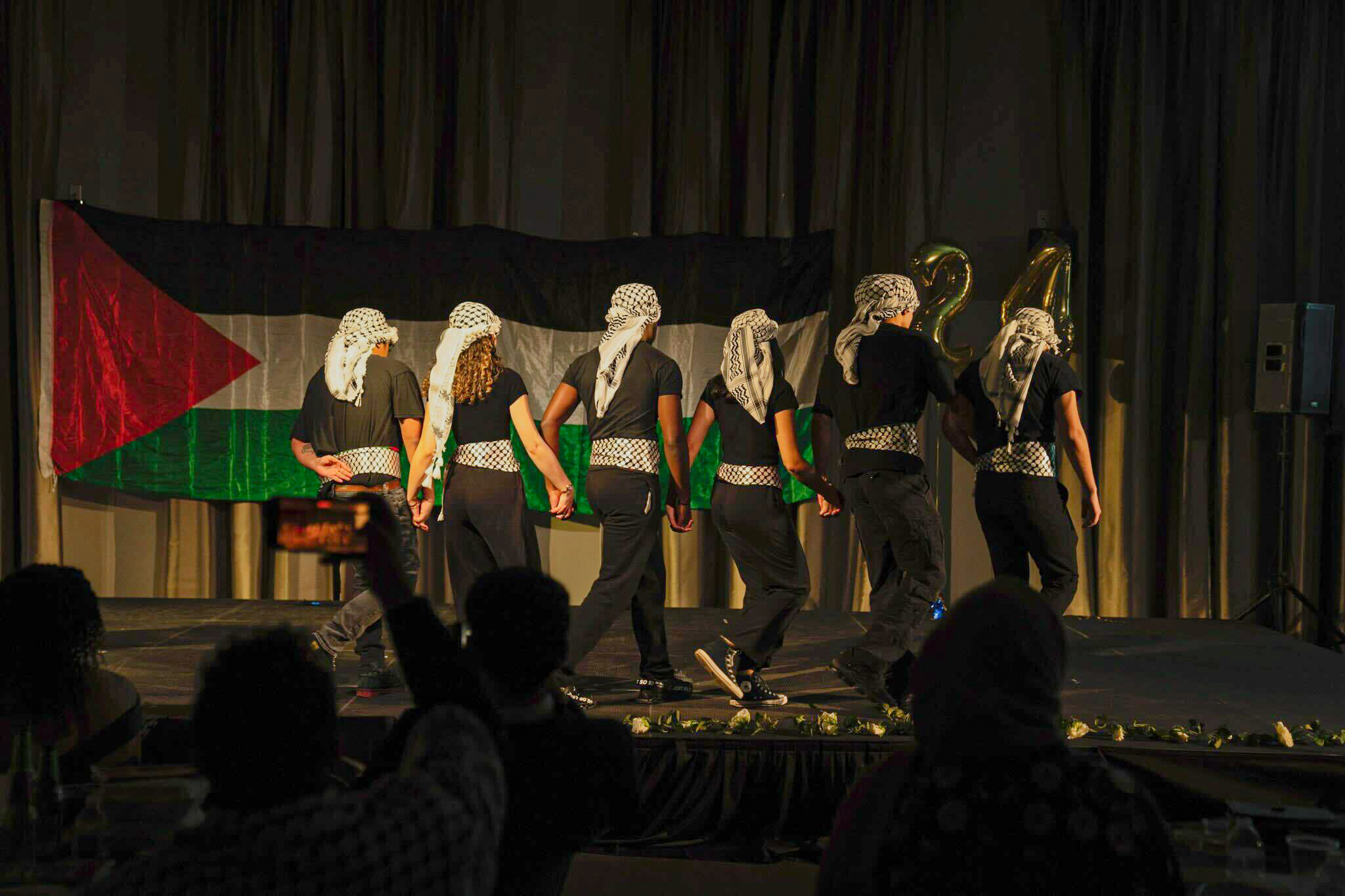One of the most unforgettable parts of the Dinner for Peace 2024 hosted by the Student Association for the Development of Arab Cultural Awareness (SADACA) was the long-awaited entrance of the newly formed Debke team. They made their first appearance at the event, spreading their rhythmic beats across the stage and into the audience. Since then, the group has developed into an on-campus Debke team that any student can join.
The Sumud Debke team is the daughter organization of SADACA. The word ‘sumud’ in Arabic means resilience, and Debke is a folk dance from the Levantine region. The Debke team was first dreamed up by SADACA president, junior Sarah Aljitawi, who learned the basics of Debke when she visited Jordan last summer.
The team’s choreographers are Aljitawi and Maryam Zalzala, former University student and SADACA business manager for the ‘23-’24 school year. Zalzala told the CT that the two usually choreograph the dances together but Aljitawi usually leads the routine. “She’s better at teaching people,” Zalzala said.
The Sumud Debke team does mostly Palestinian Debke — most of the moves that the choreographers have seen are Palestinian, though they try their best to get a good representation of other regional styles of Debke as well. Part of the team’s mission is representing Arab culture appropriately and “reclaiming things that have been stolen from us in the past,” Zalzala said.
The Debke Team has weekly practices, usually on Sundays from 12:30 to 1:30 p.m. The practices usually happen in the Spurrier dance studio, but the location changes depending on the availability of spaces.
One of the team members, senior Jaydee Ortez, shared that the practice feels a lot like a friendly get-together, “where your friends teach you something new about their culture.” Ortez appreciates that she gets to meet and spend time with people she wouldn’t have met otherwise.
The team also performs at different events, both on and off campus. Beyond Dinner for Peace 2024, the team has performed at many events including the University at Buffalo Organization of Arab Students’ Dinner last spring, “Crossroads of Culture,” “Sounds of Solidarity” last fall, and “Fundraiser for the 4 and Gaza” in late January.
For the team, performing is a great way to represent Arab culture through dance. Since “Sounds of Solidarity” was a fundraising event for the Lebanese Red Cross, the Debke team’s performance for the event used Lebanese music and traditional Lebanese moves to represent the culture. Zalzala mentioned that many people also dance Debke at pro-Palestinian protests since it is one of the most representative aspects of Palestinian culture and resistance.
The Debke team is made up of a variety of students of different ethnicities and backgrounds. According to Ortez, coming from a Hispanic background that does a lot of dancing, she sees many parallels between Debke and many of the dances she is used to, especially with the significant amount of footwork. She also gets to share her own culture during routines, even finding linguistic connections through the music played at practice.
Zalzala emphasized that everything that SADACA does is for everyone, including the Sumud Debke team. There is no audition process to join the Debke team, no dance experience is required and you don’t necessarily have to perform if you join. According to Zalzala, all of the members had no Debke experience prior to joining the team, so all of the members are learning together.
The team is also planning to host Debke-teaching workshops for students on campus. Anyone interested in joining the team can fill out the form in SADACA’s Linktree.


